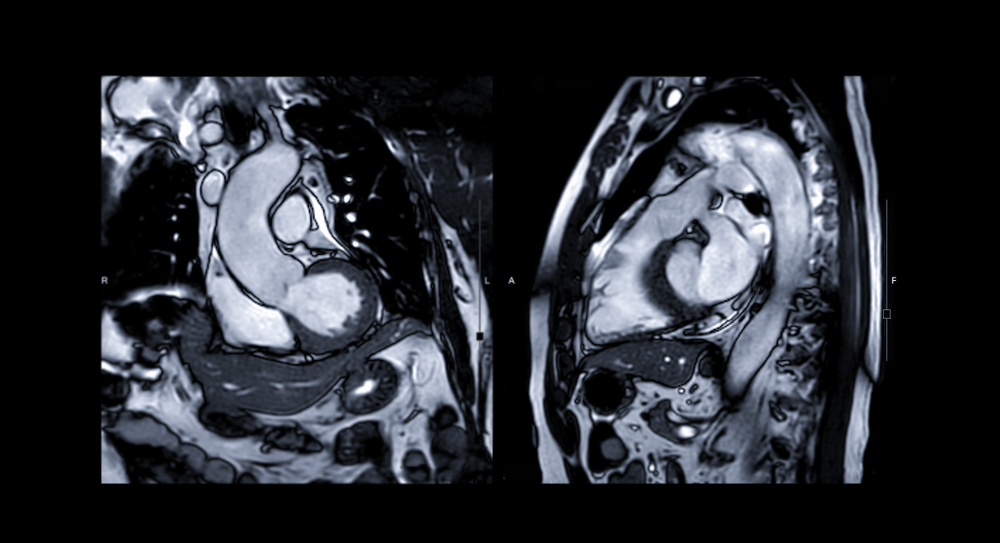An innovative AI tool can reveal how lifestyle choices like drinking, smoking, poor diet, and inactivity may age one’s heart prematurely.
This AI was developed by a team led by Professor Declan O’Regan of the Medical Research Council’s London Institute of Medical Sciences.
BBC Science correspondent Pallab Ghosh, curious about his own heart health, volunteered to experience this cutting-edge AI assessment.
The team lead, Prof O’Regan, explained the significance of the tool, stating, “When we look at someone’s face, we are adept at judging whether they look young or old for their age – our organs are just the same.”
He continued, “Some people have hearts that are much younger – and others have ones that have aged prematurely and they are more prone to diseases. So we want to find out what those factors are.”
While there are several methods for analyzing heart health, like scans, ECGs, and blood pressure readings, these are all subject to limitations and generally only screen for more serious issues and abnormalities. Even minor issues often go unnoticed by cardiologists.
As Prof O’Regan pointed out, this AI unveils the “knocks and scrapes accumulated over a lifetime, through drinking, smoking, poor diet and a lack of exercise.”
After undergoing an MRI scan post-exercise and performing various actions, the AI system analyzed Ghosh’s scan. This was compared to data from 5,000 individuals who led consistently healthy lives.
Ghosh’s results were somewhat encouraging. The AI determined his heart age as 63, slightly older than his actual age of 61.
In conversation with Prof O’Regan, Ghosh queried whether recent positive lifestyle changes might have helped mitigate the effects of his earlier dietary habits. “We don’t know whether premature heart ageing is down to your genes and you are born destined to have an older heart or it is more down to your lifestyle,” O’Regan responded.
He further elaborated, “We also don’t know whether the rate of ageing can be changed or might be reversible, enabling people to get back to a younger heart if you have the right treatment.”
Initial research pinpoints genes linked to muscle elasticity as influential factors in heart aging.
Similarly, certain genes related to the immune system, which can inadvertently cause inflammation if overly active, are also believed to play a part. Genes integral to carrying electrical signals across the heart, ensuring a steady heartbeat, are under investigation.
Equipped with a deeper understanding of genetic influences on heart aging, Prof O’Regan and his team intend to produce new targeted treatments, as he describes, “The genetics could help us slow or reverse ageing – and these scans could also help evaluate new therapies, to see the impact it is having on the damage.”
How the system works
Professor O’Regan and his team have been developing AI cardiology diagnostic systems for several years.
Here’s the culmination of their work:
Image analysis of the heart
O’Regan’s team is revolutionizing how we look at the heart using machine learning (ML), particularly through deep learning.
They’re developing new techniques for analyzing cardiac MRI datasets to understand the complex traits of the heart, such as its function, geometry, and tissue characteristics.
This allows for segmenting the heart’s movements and analyzing them independently.
Predicting adverse events
The team is also pioneering the use of AI for predicting adverse events in heart disease.
By using deep learning algorithms that integrate complex data, including motion phenotypes, genetics, and clinical variables, they’re building a more nuanced understanding of heart failure.
The goal is to create artificial reasoning systems to analyze and interpret heart scans.
Linking genes and heart disease
The group investigates why heart disease manifests differently across individuals by exploring the connection between genetics and the heart.
They’re attempting to define classes of cardiomyopathy and uncover the role genetic variants play in predisposing individuals to certain heart conditions.
Identifying molecular pathways
By harnessing machine learning, the team is conducting large-scale research to find genes that could be targeted with new drugs to lower the risk of heart disease.
Prof . O’Regan and his team have developed various software and tools available through the UK Digital Heart Project GitHub, allowing other researchers to leverage their methods.





